Almost exactly five years ago, Fox News published an article titled “America’s most influential BBQ pitmasters and personalities.” Beyond the varied approaches to smoke, sauces, and slow cook times, every single person on the list had something significant in common: They were all white. Which was ridiculous, and for which the site was rightly ridiculed.
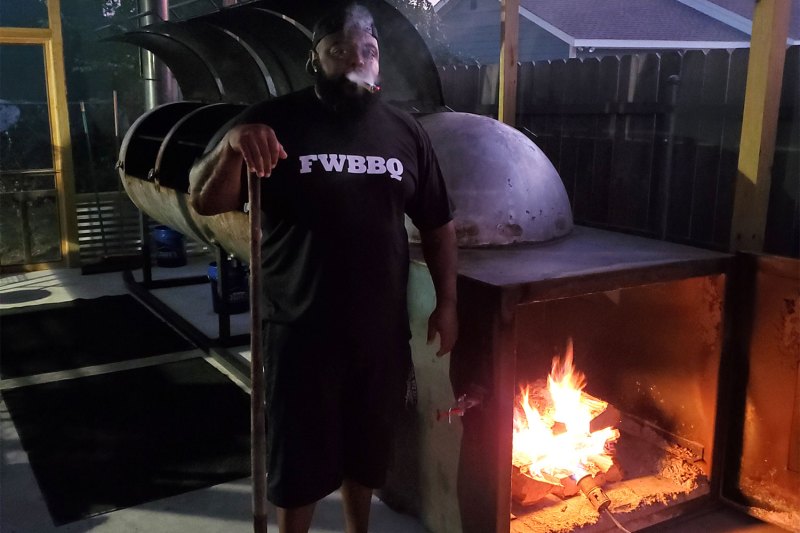
Barbecue is not traditionally a white person’s way of cooking; indeed until the first Europeans set foot in the Americas in the late 15th and early 16th centuries, slow cooking meats on structures built atop coals or fires was essentially unknown in so-called “old countries.” Barbacoa, as it would initially be known in Spanish, was, however, already the chosen cooking style of indigenous peoples across the Caribbean, in the land that today is Florida, and on up into the future America itself.
And much of the food today considered part of classic American barbecue is derivative of the ethnic cuisine of enslaved Americans — and yes, it does sound better when you just call it “Soul Food.”
Many people might picture an older, larger white man when they think of an American pitmaster, because many people are missing the complete story when it comes to barbecue in the United States. To tell that story, you need to include the BIPOC pitmasters who are cooking up some of the best food in the country today, just like they have been for generations.
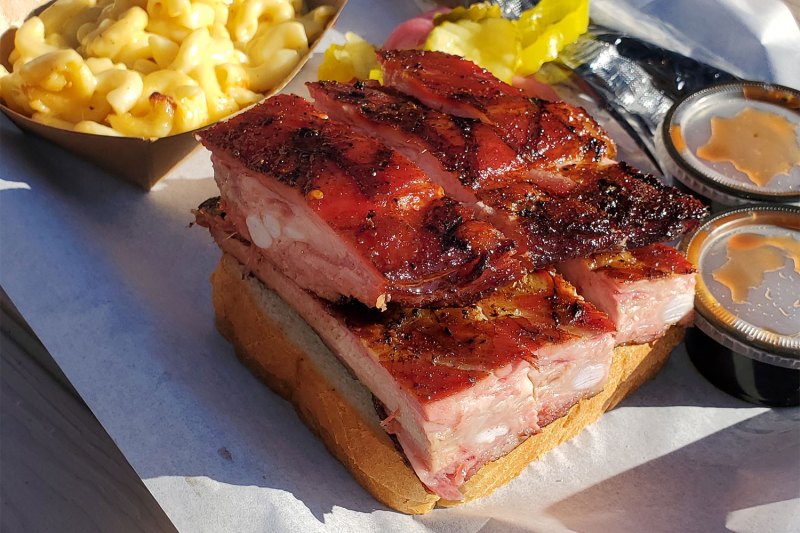
We reached out to Derrick Walker, owner and pitmaster behind the celebrated Fort Worth, Texas restaurant Smoke-A-Holics BBQ, for some perspective on cooking and being a Black pitmaster.
Smoke-A-Holics BBQ serves Central Texas-style barbecue, offering dishes like brisket with a bark of black pepper, garlic, and a secret spice blend, and turkey smoked with pecan and mesquite. He calls his style “Tex-Soul,” infusing the soul food he grew up with into the barbecue Texans now line up out the door to order.
Mr. Walker grew his business from what was once a hobby. He started out hosting pop-ups for fun before his friends at BIPOC-owned Panther City BBQ loaned him their old food truck as he got serious about cooking. Derrick set up shop in the parking lot of his wife’s salon and the business began growing at once. Today, the brick-and-mortar restaurant is in Southeast Fort Worth, an underserved part of the city (the zip code has the lowest life expectancy in all of Texas) near where Derrick grew up, an imperative for him as he scouted for a permanent location. We caught up with him after a long day of smoking meats (and right before his wife, Kesha, got to working on her celebrated deserts, which include creations like Coca Cola Cake).
The Manual: “You had a career before you opened a barbecue restaurant. What got you into barbecue in the first place?”
Derrick Walker: “My first brush with barbecue came from my grandad when I was about 12. He had a trailered smoker and would do all the family functions, all the events. Birthdays, holidays, for immediate family or on down the line of people. That’s just what he did. That’s where I first saw him fire up the smoker, where I saw briskets being seasoned, where I learned about fire management, and that’s when the barbecue bug first bit me. But it wasn’t until 2003 when I decided to do it as a profession. I was working as a food service director for a major healthcare system, but on weekends I started cooking for events, doing pop-events, cooking at fairs and festivals. Pretty soon I got pretty serious, started doing catering, and by 2019 it just got to the point where I was more busy with Smoke-A-Holics business at work than I was with the business I should have been doing, so I knew it was time to go. We signed a lease on the building and here we are.”
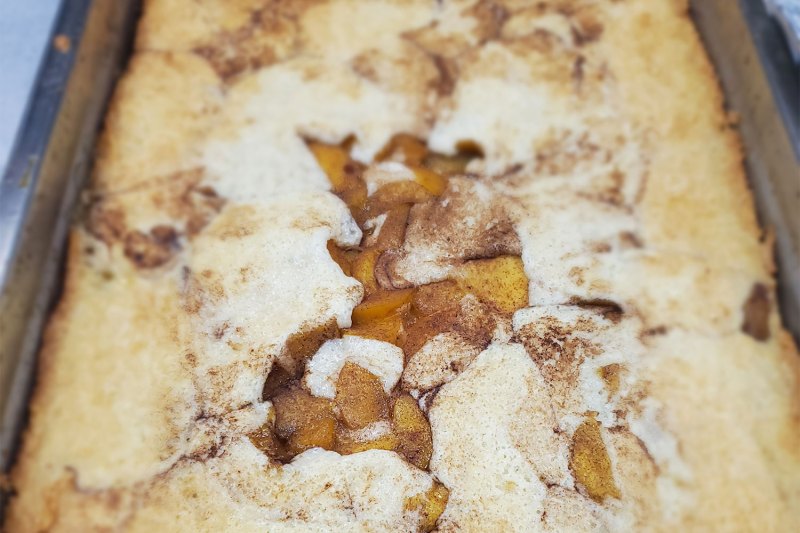
TM: “What makes Smoke-A-Holics unique among barbecue restaurants in Texas?”
DW: “I mean, honestly we do the same things everyone else does, every good craft barbecue restaurant in Texas. So I wouldn’t say unique exactly, because we all have ribs, brisket, chicken. Other places just don’t do it quite the way we do. We just put different spins. Like we have a loaded honey cornbread dish that comes with chopped brisket and baked beans, green onions, barbecue sauce, and shredded cheddar cheese and sour cream, and some of our one-off dishes like that keep people coming. We refer to our food as ‘Tex Soul’ because we serve so much of it with those kinds of foods, like collard greens and all.”
TM: “Speaking of the soul food roots and thinking about this moment in America, what is it like being a black Pitmaster today, and what influence, if any, did being a barbecue cook of color have on your rise in the industry?”
DW: “I don’t know if color had anything to do with my rise, but I will say there are so many African American pitmasters out there who don’t get the kind of press or attention they deserve. Honestly, I think what helped us stand out is the presentation. For years I hated the term ‘craft barbecue,’ maybe because there just aren’t a lot of Black pitmasters in Texas doing craft barbecue, and the only real difference is it’s just a bit more refined. You go to a traditional Black barbecue restaurant, you get the food on a white styrofoam plate, sides in the corner pockets, and all running together. Here, you have a tray that gets beautifully presented. I have that chef background, so we take the time to arrange it all, to get that topnotch presentation.
But you know, to me, I’m just a guy who cooks barbecue who happens to be African American. I don’t think of myself as a Black Pitmaster, really.”
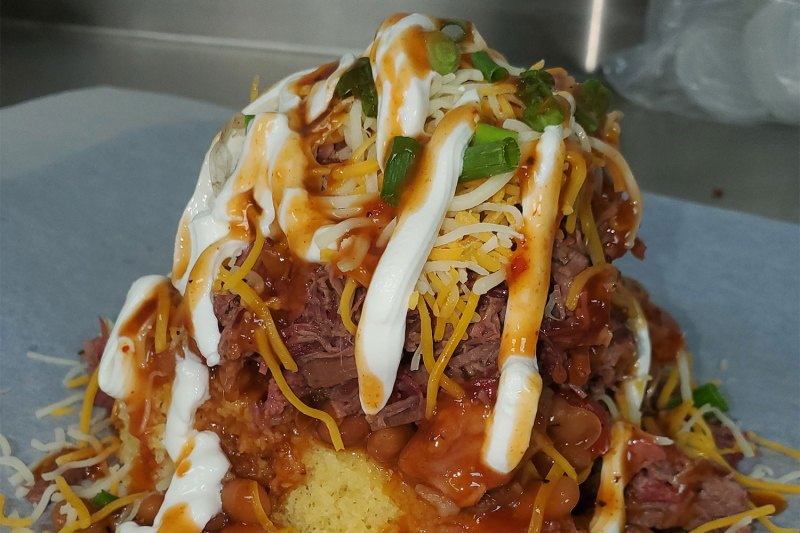
TM: “What has this year been like for you and fellow pitmasters, what with the coronavirus and then the surge of awareness and change around the refreshed Black Lives Matter movement?”
DW: “I mean, it was rough on a lot of my barbecue brothers. A lot of places had to shut down, they just didn’t have the business all the sudden. As for the virus, it wasn’t that bad on us, really. We are predominately a carry-out restaurant as it is, we only have seating inside for 12 on barstools on the walls, so our business really wasn’t hit that hard.
But then Black Lives Matter and all of it? That did have an impact. As if we weren’t already busy enough, as all of that went down, the shift for people to support black business? We felt that hugely. I mean, before sometimes there was a 30-minute wait, then all the sudden times were all the way to an hour, hour and a half, even a two-hour wait. That was in a matter of days, and it’s been like that for weeks.
And it’s a mix of who the new customers are. Black, white, all sorts of people. There was a Facebook page created to support Black-owned restaurants in the Dallas-Fort Worth area, and it blew up to 50 or 60 thousand members so fast, I know of restaurants that were doing maybe 30 orders a day total that went up above 200 or more. They weren’t even ready for it. We were already always doing big numbers, so we just had to step it up. And really it has been a huge mix, just a lot of support from everyone.”
You know, to me, I’m just a guy who cooks barbecue who happens to be African American. I don’t think of myself as a Black pitmaster, really.
Derrick Walker is an ascendant member of America’s noted community of pitmasters, and he joins the ranks of many other BIPOC barbecue chefs who have likewise infused their cooking with their heritage and culture. If you’re in Fort Worth any time soon, head to Smoke-A-Holics.
But if you’re in the eastern part of North Carolina, its Ed Mitchell’s legendary barbecue you need to try. Now a bit past 70, Mitchell has been wowing taste buds with his famous whole hogs since the 1960s. From cooking at the James Beard House in New York City to releasing a line of barbecue sauce of his own recipes to teaching master classes on barbecue at major food and wine festivals, Mitchell is one of the most revered American pitmasters at work today.
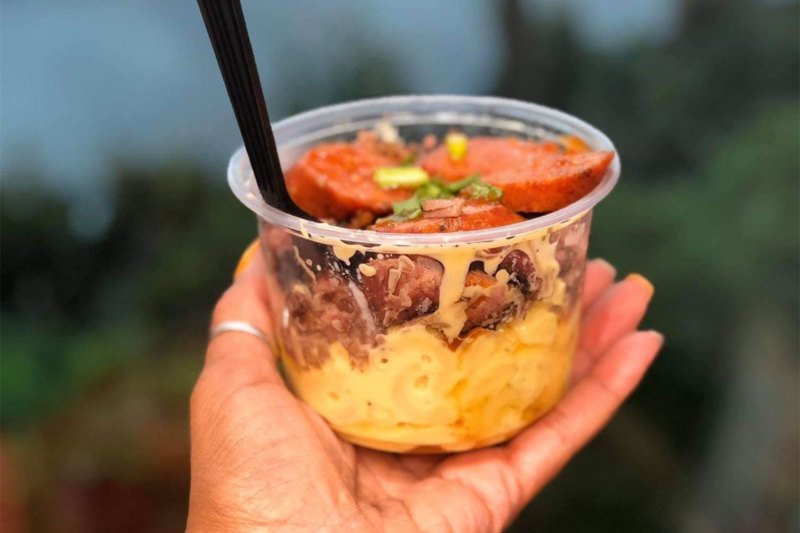
Head a state farther south (yes, to South Carolina) and make your way to Rodney Scott’s Whole Hog BBQ for another take on pork perfection. Scott cooked his first whole pig at 11 years old, and today his mastery of heat and smoke control — he and his team use hardwood burned to embers and then shoveled under the meat as often as needed; no cooking hog is ever left alone — are what define the signature dish. But try the smoked turkey and spare ribs, too.
Now travel a few thousand miles west and a bit north to find Matt Horn, a pitmaster cooking Texas-inspired barbecue up in Northern California. You won’t find Horn tending the fire out behind a restaurant, but you could find Horn smoking up brisket, lamb shoulder, or spare ribs at a private event you had catered by Horn Barbecue or at the occasional surprise popup location.
Heading back to the center of the country, Jones Bar-B-Q in Kansas City is today owned by sisters Deborah “Little” Jones and Mary “Shorty” Jones. Little and Shorty spent much of their childhood watching their dad, Leavy B. Jones Sr. slow smoking meats over the pit, just like they do today, 30 years and then some on. As befitting Kansas City barbecue, the rubs and sauces help define this KC ‘Q.
And then of course there’s Dr. Howard Conyers, the rocket scientist of barbecue pitmasters. Like, actually. Seriously: This man is a rocket scientist who just happens to be a masterful barbecue chef and hosts the PBS show Nourish which is all about how food, culture, and people are so integrally woven.



